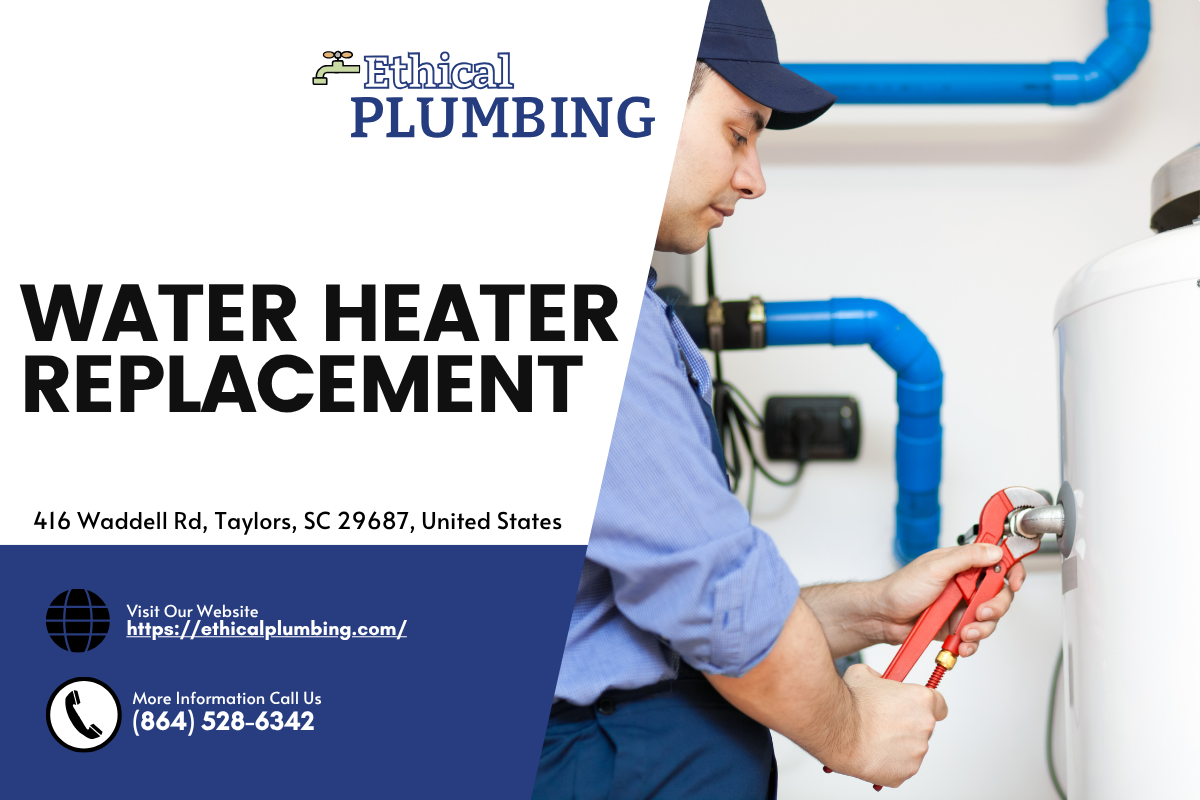


Introduction
Water heaters are an integral part of our daily lives, providing hot water for various needs— from showering to dishwashing. However, when it comes to water heater safety, it's crucial for every homeowner in Taylors to adhere to specific guidelines. Not only does this ensure the longevity of your appliance, but it also protects your family and home from potential water heater repair hazards. In this comprehensive guide, we’ll delve into essential water heater safety tips that every Taylors homeowner should follow.
Water Heater Safety Tips Every Taylors Homeowner Should Follow
Understanding Your Water Heater: Types and Their Risks
What Are the Common Types of Water Heaters?
When it comes to selecting a water heater, homeowners typically have two main options: traditional tank-style units or tankless models. Each type has its unique set of benefits and potential pitfalls.
- Traditional Tank Water Heaters: These units store a large volume of hot water in a tank. While they can provide a steady supply of hot water, they are more prone to leaks and require regular maintenance. Tankless Water Heaters: These modern units heat water on demand, offering energy efficiency. However, if not properly installed or maintained, they can pose risks such as overheating or electrical issues.
Common Risks Associated with Water Heaters
Regardless of the type you choose, there are inherent dangers linked to improper installation and maintenance. Here are some risks associated with water heaters:
- Scalding: Hot water can cause severe burns if temperatures exceed safe levels. Leaks: A malfunctioning unit can leak water, leading to extensive damage or mold growth. Gas Leaks: For gas-powered units, improper ventilation can lead to dangerous gas leaks.
Regular Maintenance is Key
Why is Water Heater Maintenance Important?
Routine maintenance is vital for ensuring your unit operates efficiently and safely. Regular checks can prevent costly repairs down the line and extend the life of your appliance.
How Often Should You Schedule Maintenance?
It’s advisable to schedule professional water heater service at least once a year. This helps identify minor issues before they escalate into major problems requiring expensive water heater repair taylors services.
Signs Your Water Heater Needs Repair
Recognizing early warning signs can save you time and money. Here’s what to look out for:
- Unusual noises (banging or popping) Discolored or foul-smelling water Inconsistent hot water supply Leaks around the base
If you notice any of these symptoms, don’t hesitate; contact a qualified technician for water heater repair taylors as soon as possible.
The Importance of Proper Installation
Why You Should Hire Professionals for Installation
Installing a new water heater is not a DIY task. Professional installation ensures that all connections are secure and compliant with local codes. Improper installation could lead to serious issues down the road.
What Are Common Mistakes in Installation?
Here are some common pitfalls during installation:
Incorrect sizing—getting a unit that's too small or too large. Poor venting for gas units leading to carbon monoxide buildup. Failing to use appropriate materials which could lead to leaks.By hiring experienced technicians for water heater installation, you mitigate these risks significantly.
Safety Features Every Water Heater Should Have
What Safety Features Should You Look For?
Modern water heaters come equipped with essential safety features designed to protect users:
- Temperature Pressure Relief Valve (TPR): This valve prevents excessive pressure build-up in the tank. Automatic Shut-off: Some advanced models automatically shut off if they detect malfunctions.
Be sure your unit has these features operational; if not, consult with professionals about upgrades or replacements—especially if you're considering water heater replacement taylors.
Understanding Temperature Settings
What Is the Ideal Temperature Setting for Your Water Heater?
The U.S. Department of Energy recommends setting your water heater's thermostat between 120°F and 140°F (49°C - 60°C) for optimal performance while minimizing scalding risks.
How Can I Adjust My Thermostat Safely?
Always turn off power before making adjustments:
For electric heaters, switch off at the circuit breaker. For gas units, turn the dial on the thermostat down slowly.If you're unsure about adjusting settings yourself, consult a professional technician who specializes in water heater service.
Flushing Your Water Heater: Why It's Necessary
What Does Flushing Do?
Flushing your tank annually removes sediment buildup that could affect efficiency and contribute to corrosion over time.
How Do You Flush Your Water Heater?
Turn off power/gas supply. Connect a garden hose to the drain valve at the bottom. Open hot-water faucets around your home. Drain until clear; then refill by closing drain valve and removing hose.If you’re uncertain about performing this task correctly, it may be best left to professionals specializing in water heater maintenance.
FAQs About Water Heater Safety Tips
1. How often should I replace my water heater?
Most traditional tanks last about 10–15 years while tankless models can last up to 20 years with proper care—keeping an eye on performance will help determine when replacement is necessary.
2. What are common signs that my water heater needs servicing?
Look out for strange noises from the unit, inconsistent temperature changes when using hot water, visible rust or corrosion on pipes/tank exterior, and any unexplained puddles around the base of the unit.
3. Can I install my own water heater?
While it's possible as a DIY project for those knowledgeable about plumbing and electrical systems, hiring professionals ensures compliance with local building codes and safety standards—thereby reducing risk factors involved in improper installations.
4. What should I do in case of a leak?
Immediately turn off the power source (gas/electricity) connected to your unit; then shut off cold-water supply lines leading into it before contacting emergency plumbing services specializing in water heater repair taylors.
5. How do I know if my TPR valve is functioning properly?
Perform periodic tests by lifting its lever; it should release some pressure and then reseat itself without leaks—if it fails this test contact professionals right away!
6. Is it worth investing in a tankless model over traditional tanks?
Tankless systems offer greater energy efficiency since they only heat when needed—but evaluate based on household size/usage patterns before deciding which type suits best based upon needs/preferences!
Conclusion
In conclusion, maintaining a safe environment regarding your home's hot-water system requires knowledge combined with proactive measures tailored specifically towards individual circumstances relating directly back into broader concerns like family health & wellbeing overall! By following these detailed safety tips outlined above along with consulting experts whenever necessary—you'll ensure both longevity & peace-of-mind throughout every step involved within ownership experience pertaining towards anything involving heating elements utilized within residential settings!